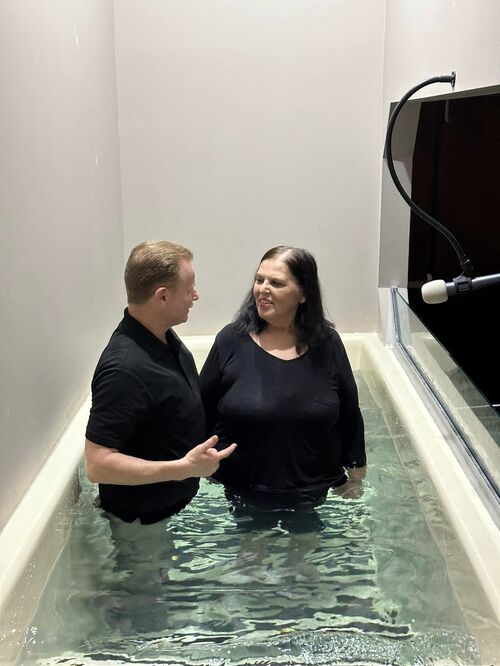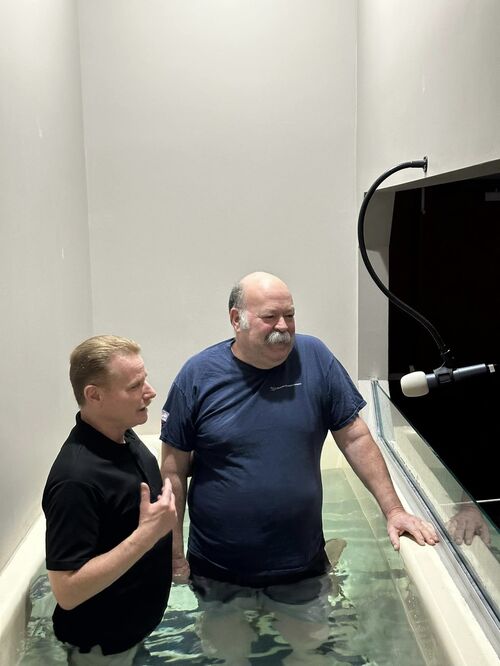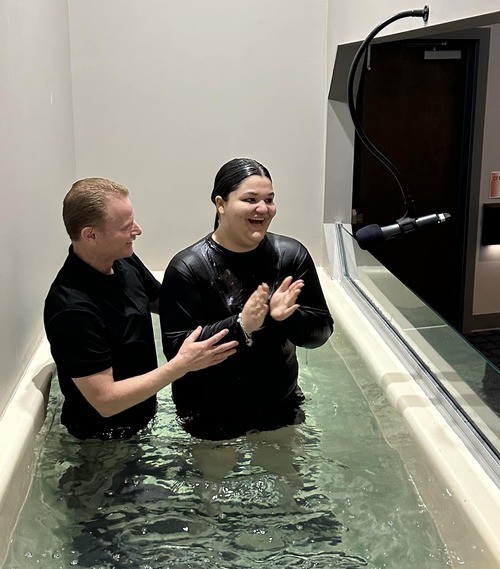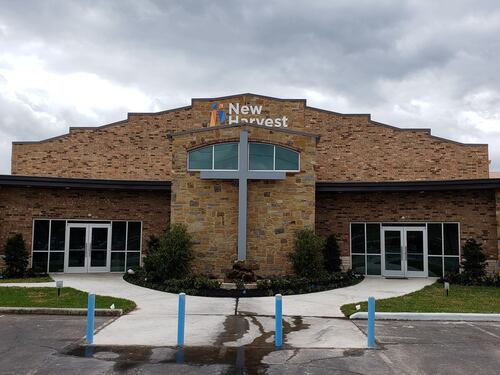Core Beliefs
The following are the core beliefs of New Harvest based on the foundational truths taught in the Bible. All of our teaching and ministry are rooted in and flow out of these biblical doctrines.
The Bible
We believe that the Bible is the infallible Word of God, divinely inspired; that it is inerrant in the original manuscripts and preserved by God for us. We believe at our core belief that the Bible is the authority for this church and each one of us for every age.
God
We believe that God exists eternally in three persons: God the Father, God the Son, and God the Holy Spirit. These three are one God. We believe God created the universe by His Power and His Word. We believe that God is all-knowing, all-powerful, and ever-present.
Jesus
We believe that God the Father sent Jesus Christ into this world to save us from our sins. We believe that Jesus Christ was born from a virgin, sinless in His life, and mighty in words and deeds. Jesus was both God and man, and He was crucified on the cross for our sins. Jesus was bodily resurrected from the dead; He then ascended into Heaven, where He sits on the right hand of God the Father Almighty. We believe that He is the head of the church and intercedes for believers, and Jesus Christ is coming again personally, visibly, and bodily to reign as Lord.
Holy Spirit
We believe the Holy Spirit is a person, is the third person of the Godhead, and has all the divine characteristics. He indwells all believers and baptizes and seals them at the moment of salvation. He fills them in response to confession of sin and surrenders to the Lord Jesus Christ.
Salvation
We believe that Jesus provided salvation for all through His death on the cross. However, to receive, one must repent of sin and trust Jesus Christ alone. The true believer is eternally secure and cannot lose his salvation. They may, however, lose their joy by sin and bring the loving discipline of the Father upon themselves.
All who received Jesus Christ as Lord will at death depart to be with Him in their spirits, and at Christ’s return, they will receive a new body, which will be like His glorious body.
All who received Jesus Christ as Lord will at death depart to be with Him in their spirits, and at Christ’s return, they will receive a new body, which will be like His glorious body.
The Church
We believe a New Testament church is a local body of baptized believers who agree together to worship Jesus Christ, edify the body of believers, evangelize the lost, minister to, and disciple one another.
The church has two ordinances: Baptism and the Lord’s Supper
1. Baptism symbolizes the death, burial, and resurrection of Jesus Christ and our new life in Him.
2. The Lord’s Supper is a reminder of Christ’s death by taking the bread, which symbolizes His body, and the drinking of wine, which symbolizes His blood.
The church has two ordinances: Baptism and the Lord’s Supper
1. Baptism symbolizes the death, burial, and resurrection of Jesus Christ and our new life in Him.
2. The Lord’s Supper is a reminder of Christ’s death by taking the bread, which symbolizes His body, and the drinking of wine, which symbolizes His blood.



Marriage
This Church believes in the sanctity of the marital union as described in Scripture:
a. God created the first marriage as a sacred covenant relationship between one man and one woman for the purposes of procreation, companionship, and dominion over creation, in keeping with the covenant relationship God himself established with his own creation (Genesis 2:15-24; Romans 1:16-32); and
b. Jesus blessed a marriage celebration between a man and a woman with his presence and his first public miracle, thereby affirming the traditional definition of marriage as a cornerstone of every culture and community (John 2:1-11); and further that he advised those who are for congenital or psychological reasons unable to enter into marriage (i.e., between a man and a woman) to remain single and therefore celibate (Matthew 19:4-12); and
c. Society historically has embraced this traditional definition of marriage, eschewing all other unions as unnatural, inappropriate, and anti-social, and has advocated the family unit of husband and wife and their children as the chief building block of society (Leviticus 18:22-30; Psalm 127:3-5; Romans 1:16-32; 1 Corinthians 7:1-2; Hebrews 13:4).
This Church affirms that all marriage ceremonies performed in the name of this church and any related celebrations or activities allowed in its facilities shall be for unions that meet the standards named in this church's values, and further, that church ministers and staff engage only in marriage ceremonies in keeping with this church’s adopted biblical and theological definition of marriage.
a. God created the first marriage as a sacred covenant relationship between one man and one woman for the purposes of procreation, companionship, and dominion over creation, in keeping with the covenant relationship God himself established with his own creation (Genesis 2:15-24; Romans 1:16-32); and
b. Jesus blessed a marriage celebration between a man and a woman with his presence and his first public miracle, thereby affirming the traditional definition of marriage as a cornerstone of every culture and community (John 2:1-11); and further that he advised those who are for congenital or psychological reasons unable to enter into marriage (i.e., between a man and a woman) to remain single and therefore celibate (Matthew 19:4-12); and
c. Society historically has embraced this traditional definition of marriage, eschewing all other unions as unnatural, inappropriate, and anti-social, and has advocated the family unit of husband and wife and their children as the chief building block of society (Leviticus 18:22-30; Psalm 127:3-5; Romans 1:16-32; 1 Corinthians 7:1-2; Hebrews 13:4).
This Church affirms that all marriage ceremonies performed in the name of this church and any related celebrations or activities allowed in its facilities shall be for unions that meet the standards named in this church's values, and further, that church ministers and staff engage only in marriage ceremonies in keeping with this church’s adopted biblical and theological definition of marriage.

